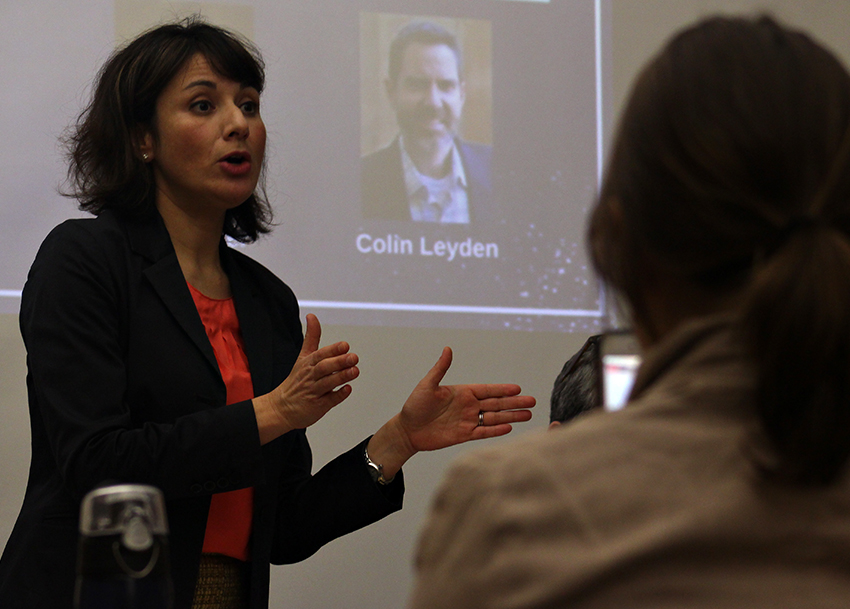With Hurricane Harvey fresh on their minds, panelists gathered Tuesday to discuss the need for climate-focused political action in Texas.
Environment Texas at UT, University Democrats, Engineers for a Sustainable World and UT’s Climate Change Action Committee sponsored the panel at Batts Hall to discuss the University’s role in leading Texas toward sustainability and how to prevent natural disasters caused by climate change.
The summit had a mixture of state, University and nonprofit representatives, such as State Rep. Gina Hinojosa, D-Austin, who said there needs to be a change in legislation regarding climate change.
“In the aftermath of Harvey, so much needs to be fixed that has been broken,” Hinojosa said. “Where we really need to make strides is at the ballot box, because that’s how we’re going to get real change.”
Hinojosa said climate change has become a partisan issue, which has resulted in pushback against climate change legislation.
“If you feel like things are scary and uncertain and unstable, it’s because they are and this isn’t the way government is supposed to run,” Hinojosa said. “I’m sorry to sound alarmist and negative, I just want to convey the reality of the situation we’re in.”
Jim Walker, director of sustainability at UT-Austin Office of Sustainability, said various universities in the UT System regularly meet to discuss ideas on how to make their campuses more environmentally friendly.
“Each campus has its own culture and identity,” Walker said. “It’s more about getting topical and finding the person with the specific topic at the specific campus to deal with (the specific issues).”
Colin Leyden, senior manager at the Environmental Defense Fund, said UT-Austin responsibly takes care of its land and water usage. However, Leyden said more can be done.
“I think they should transfer that same high standard they take toward water and land use and use it toward climate and air,” Leyden said.
Government graduate student Tom Conroy said he enjoyed the panel but believes the government should not have to wait for an economic need to pass more legislation focused on climate change. Conroy said there should not be a compromise between the two.
“I don’t want to sound extremist, but I’m not sure you can really find middle grounds when the science so clearly points to one perspective,” Conroy said.




















